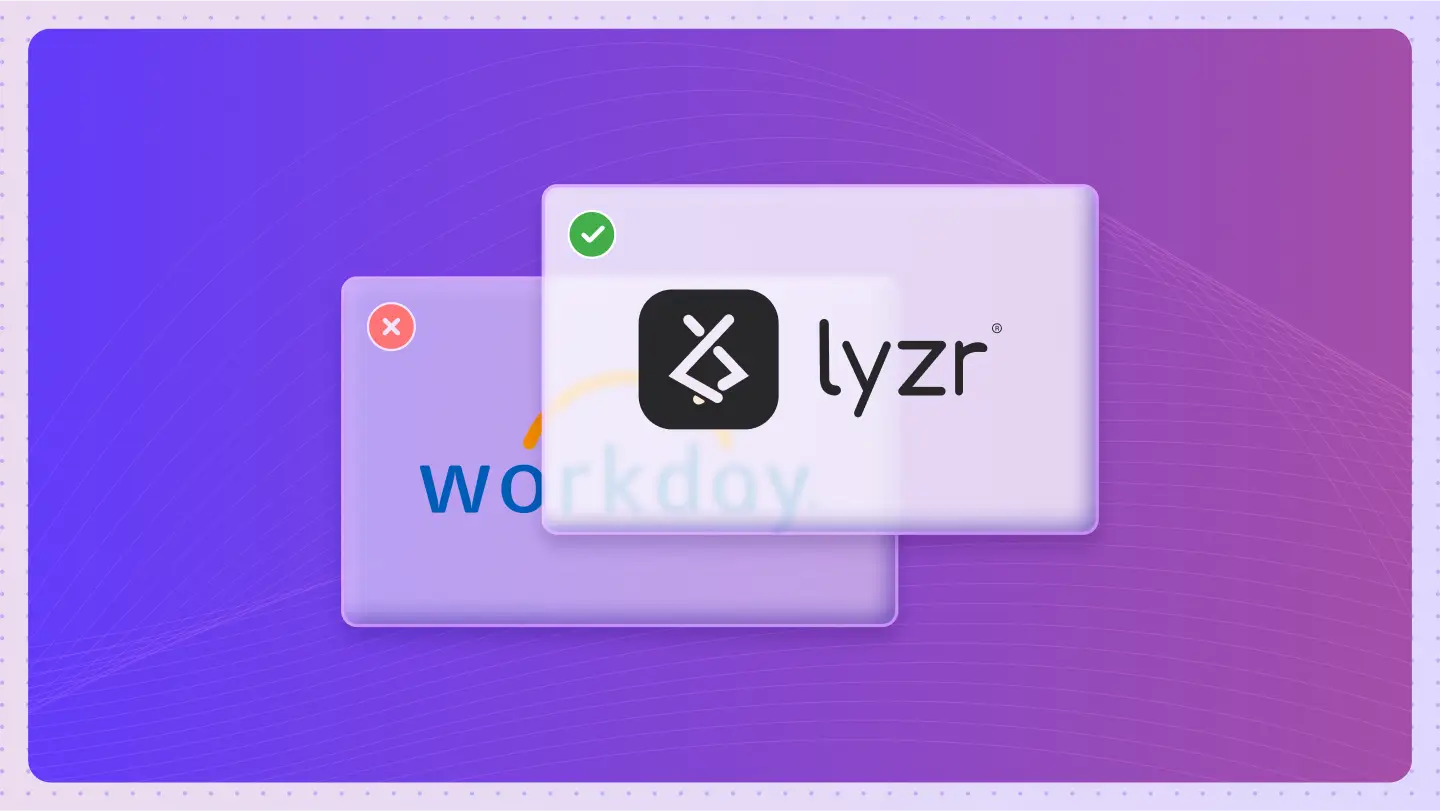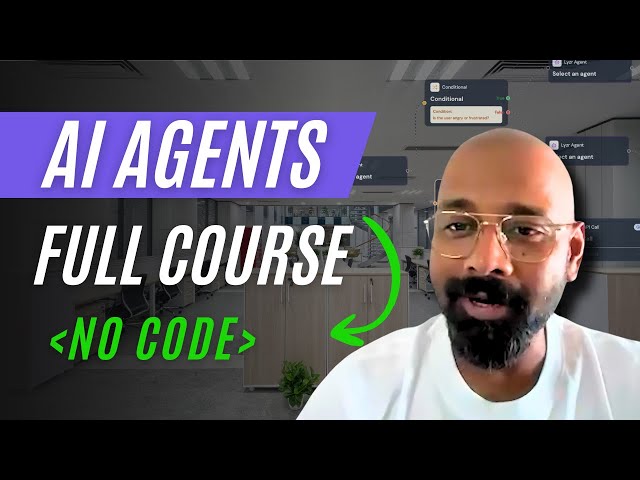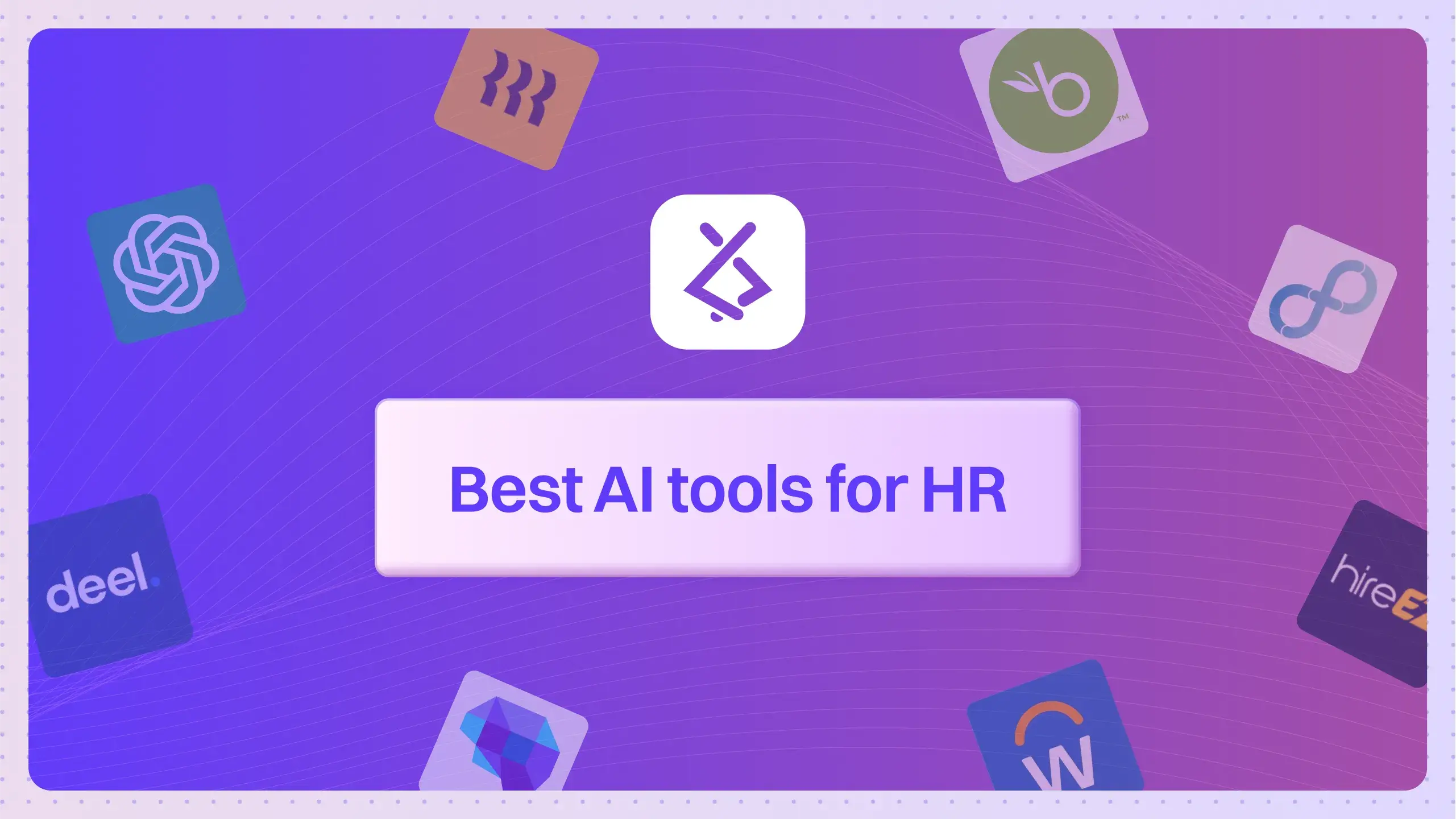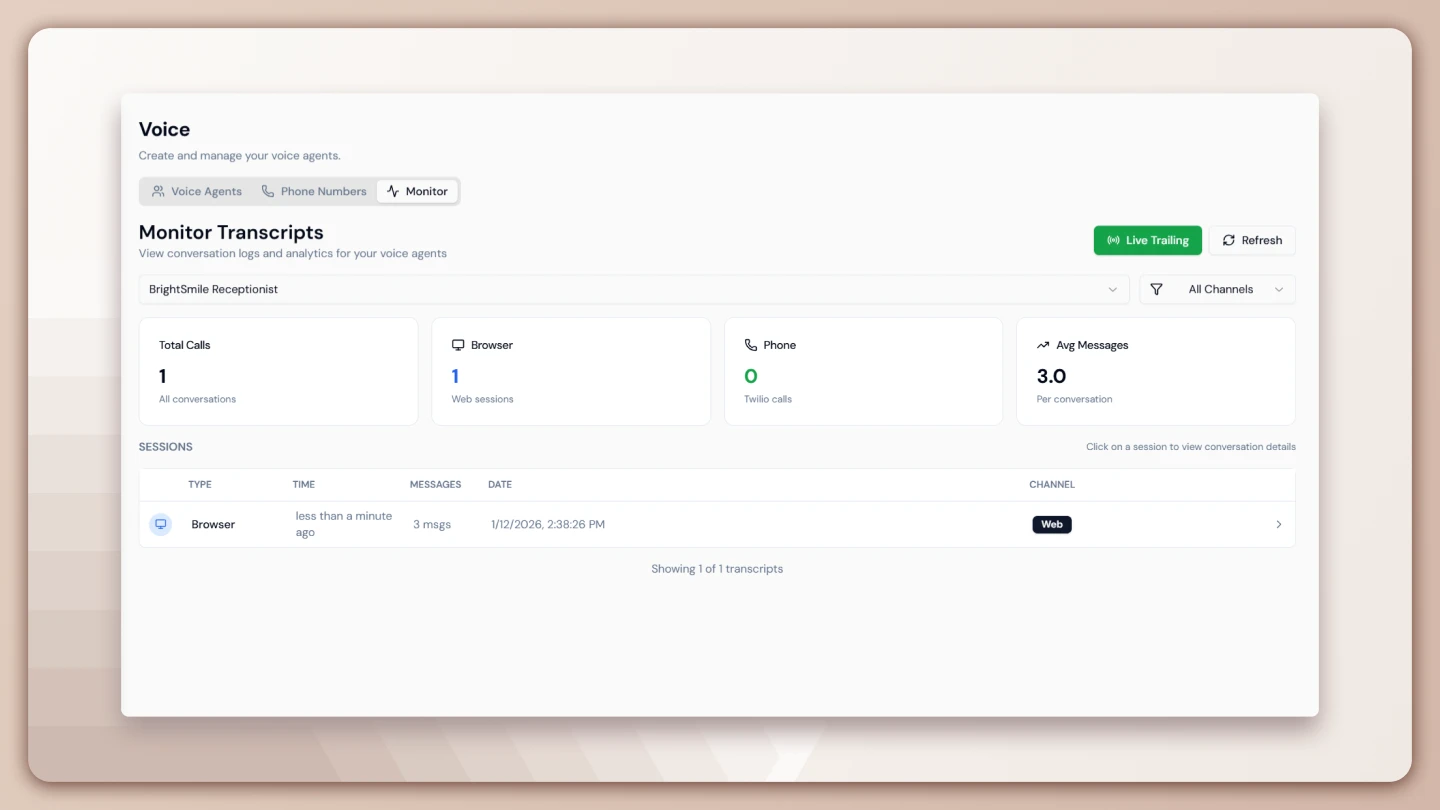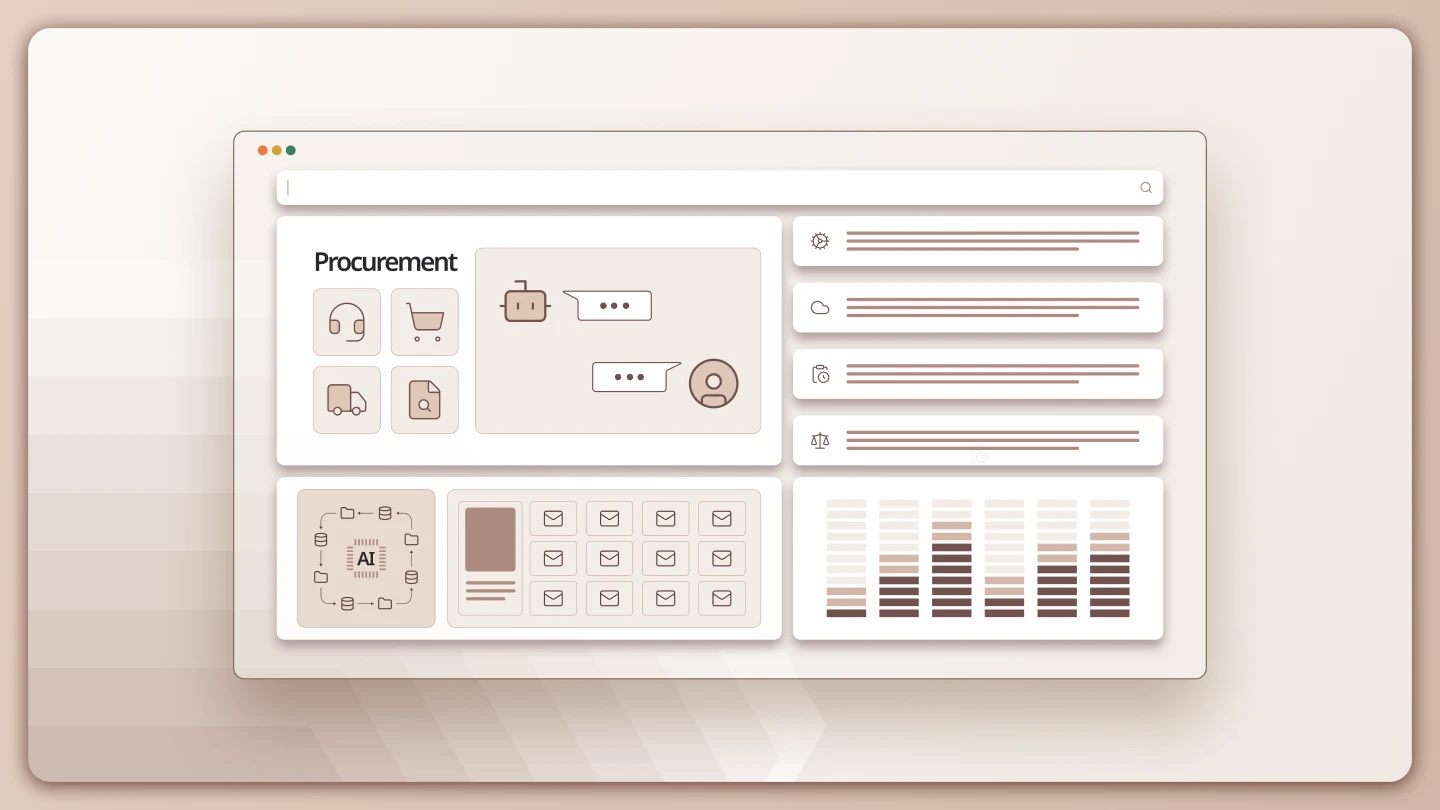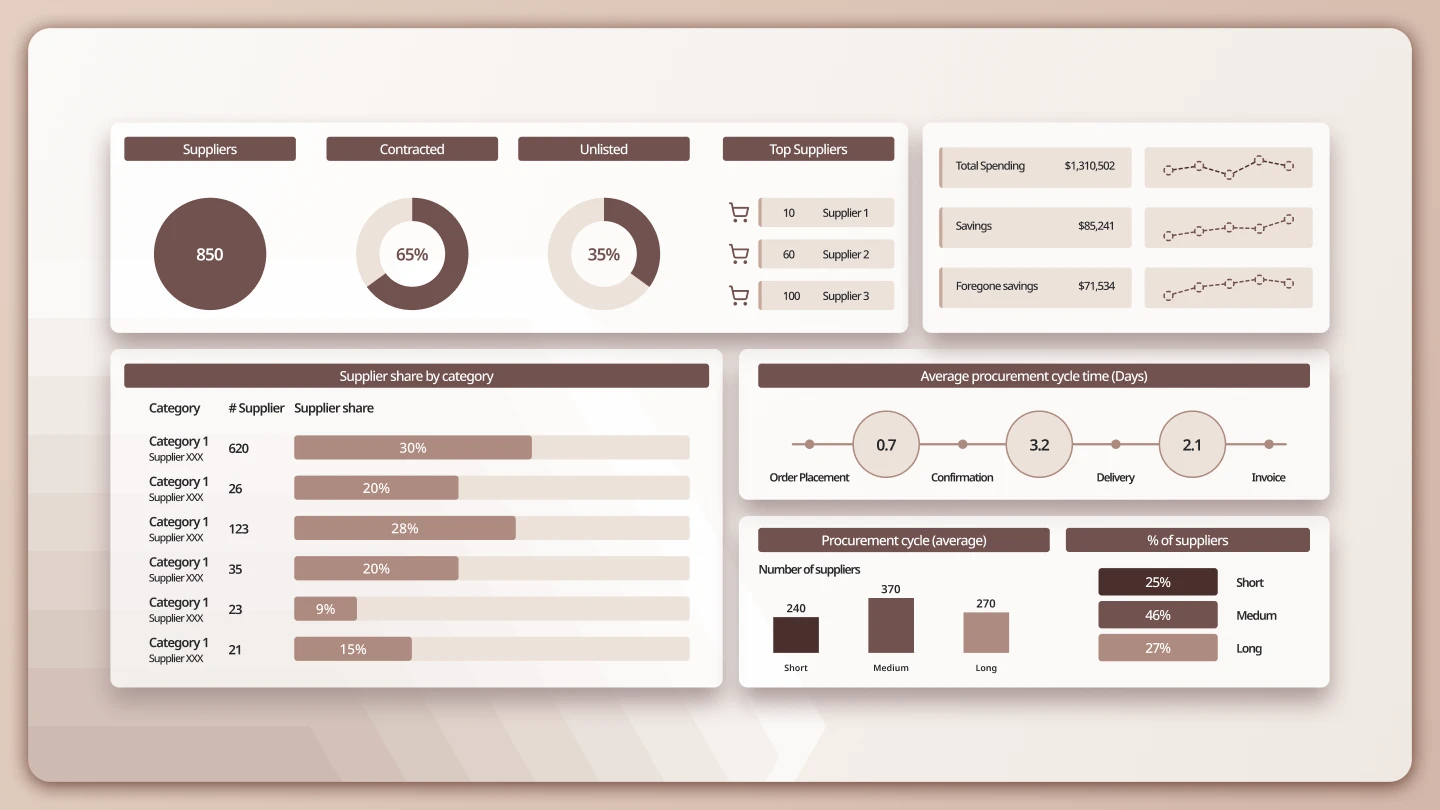Table of Contents
ToggleDo you ever stop and wonder when you read something like “AI in X”? (If not, then you’ve been living in a cave over the last couple of months! Jk…)
Because really how could an AI, something that has never worked with humans, possibly understand humans well enough to be useful?
And since this blog is about HR, do you realize how it could actually work alongside a human department?
I used to think the same and honestly, I found myself a little fascinated by what it could do.
Today, HR leaders aren’t just talking about AI they’re working alongside it.
From screening résumés to running interviews, from tracking engagement to predicting attrition AI has quietly become the invisible coworker every people team relies on. (Take a moment to think about how far we’ve come, to actually see and experience this.)
Still, most HR leaders I speak with are stuck in the same loop:
They know AI can save time, improve hiring quality, and reduce bias but they don’t know which tools actually deliver or where to start.
This post breaks that down not by throwing a list of random tools at you (phew!), but by helping you understand how to evaluate AI solutions for HR.
What matters. What doesn’t. (Because honestly, in this AI era, nobody reads the whole thing they just skim for keywords. You see, I highlighted a few already.)
And most importantly, how to choose systems that make your team faster, fairer, and more human not more robotic.
Let’s start with the shift that changed everything (I promise I’ll get straight to the point)
Why HR Teams Are Turning to AI Tools
(I’m writing this while wearing my “Being Human” tee , fitting, right? because that’s what great HR teams do to stay human, even with AI helping out.)
So, what does this shift actually look like in practice? How are HR teams using AI every day to handle more work without losing the human touch?
HR teams today are being asked to do more with less. (If you’re in HR, you’ll probably relate.)
High-volume hiring, ongoing employee engagement, performance tracking, and strategic planning all while maintaining a people-first approach (because giving employees the best experience is non-negotiable). It’s no wonder HR professionals often feel like they’re juggling flaming swords.
This is where AI tools step in. They aren’t here to replace HR they’re here to supercharge it. From streamlining recruitment to optimizing compensation, from spotting trends in employee engagement to supporting talent management decisions, AI helps HR teams work smarter, not harder.
With the right AI tools, HR professionals can focus on what truly matters: connecting with employees, nurturing growth, and driving strategic initiatives instead of getting bogged down in repetitive, manual tasks.
In short, AI isn’t just a tech upgrade for HR. It’s becoming the quiet coworker that helps HR teams stay effective, efficient, and human at the same time.
How HR Teams Are Actually Using AI (and Why It Matters)
This is what it looks like in practice. It’s not some futuristic scenario it’s happening in HR teams today. (Take a moment think about your own team and how much easier things could be.)
1. Smarter Recruitment and Candidate Screening
High-volume hiring can feel like searching for a needle in a haystack. AI tools scan résumés, rank candidates based on skills, and flag potential issues saving hours of repetitive work. (Imagine cutting your screening time in half yep, it’s possible.)
2. Predicting Engagement and Retention
AI doesn’t just crunch numbers. It analyzes engagement trends, predicts who might leave, and helps HR intervene before problems escalate. (Honestly, sometimes I catch myself thinking: what would it take to have all this in one smart agent? Oh wait that’s Diane.)
3. Optimizing Performance and Talent Management
AI identifies skill gaps, suggests learning paths, and provides insights for fairer performance reviews. HR leaders can plan growth strategies backed by data, not just intuition. (Because nobody likes surprises during promotion season;) right?)
4. Automating Time-Consuming Admin Tasks
Scheduling interviews, sending reminders, managing paperwork AI can handle it. This frees HR to focus on strategic initiatives and meaningful human interaction. (Yes, you can finally stop drowning in emails.)
How to Evaluate AI Tools for HR (Without Getting Overwhelmed)
Okay, here’s the thing: there are tons of AI tools out there claiming to revolutionize HR. (Side note: I might have spent a few late nights just scrolling through them don’t judge.)
Not all of them actually help. Some are shiny marketing claims; others genuinely make your life easier. So how do you separate the wheat from the chaff?
1. Understand the Problem You Want to Solve
Before buying a tool, ask yourself: is your pain point hiring speed, candidate quality, engagement insights, or something else? AI works best when it’s targeted. (Don’t buy a Swiss army knife when all you need is a hammer.)
2. Look for Real “Coworker-Style” Functionality
The AI should act like a teammate, not just a dashboard. Can it:
- Suggest candidates rather than just list them?
- Predict engagement trends rather than just show numbers?
- Automate scheduling and routine tasks?
(If the answer is yes and you want to see it in action, Diane does all three.)
3. Check Integration and Ease of Use
A powerful tool is useless if it doesn’t integrate with your existing HR systems or takes weeks to set up. Look for solutions that slot right into your workflow. (Bonus points if your team actually enjoys using it)
4. Evaluate Data Privacy and Compliance
HR handles sensitive data. Make sure the AI platform complies with local labor laws, privacy standards, and your internal policies. (No one wants a GDPR headache.)
5. Pilot Before You Commit
Most tools let you run a trial. Test it on a small team or process first. Measure impact on efficiency, quality, and human experience. (Yes, it’s a little extra work but it saves you from buying a dud.)
TL;DR: The best AI tools for HR are the ones that:
- Solve real problems
- Act as a “coworker,” not just software
- Integrate seamlessly
- Respect privacy
- Deliver measurable impact
(Phew! That’s a lot, but if you take these steps, your AI adoption won’t feel like a gamble. And yes, Dia- nvm)
AI Tools Help HR?(You decide!)
AI in HR isn’t just about automation it’s about better outcomes. From hiring to employee development, AI is already driving meaningful improvements in speed, accuracy, and experience.
HR AI tools are software solutions that leverage advanced technologies like machine learning and natural language processing to automate HR tasks, improving efficiency and allowing professionals to focus on critical human aspects of their roles.
AI powered HR tools are essential resources for modern HR leaders facing overwhelming challenges.
Top 3 AI Use Cases for HR Teams (You Can Actually Try Today)
1. Recruitment & Screening:
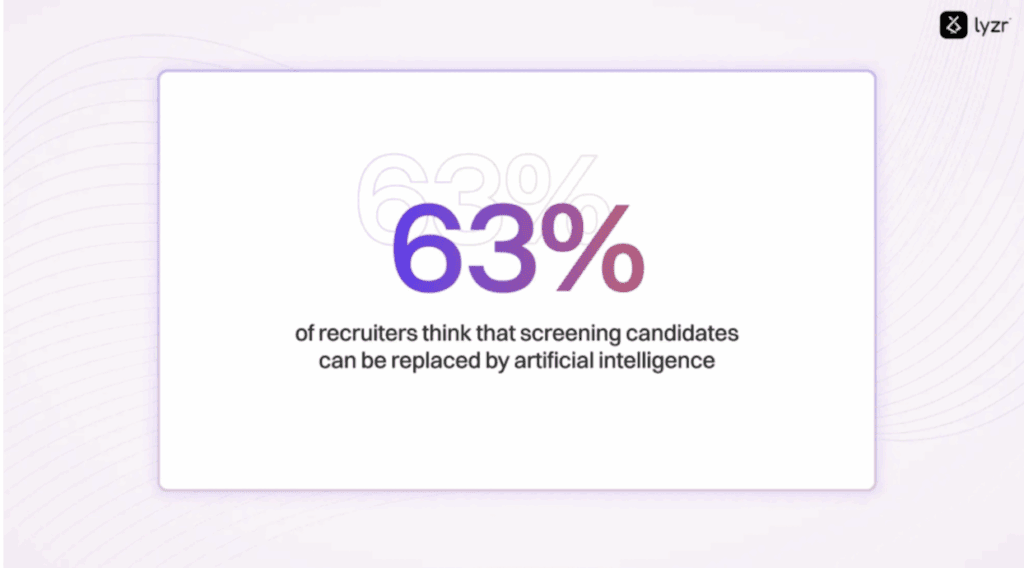
Hiring managers often deal with hundreds of resumes per role. AI takes over repetitive screening and helps
- Reduces time-to-hire by up to 50%
- Cuts recruitment costs by nearly 30%
- Improves workforce diversity by 35%
- Speeds up shortlisting while reducing bias
AI-driven resume screening enhances efficiency by analyzing resumes to match candidates with job criteria, streamlining the hiring process. AI tools significantly enhance talent acquisition by identifying, attracting, and retaining top talent efficiently.
2. Onboarding
A smooth start leads to longer employee stays. AI automates the logistics of onboarding and delivers more consistent early experiences.
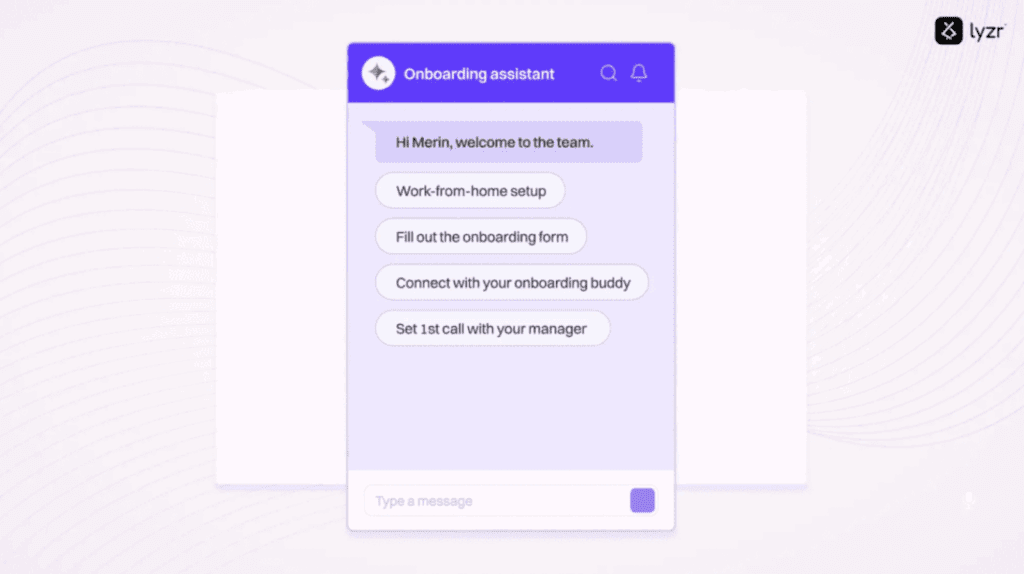
- Improves new hire retention by 82%
- Boosts first-month productivity by 70%
- Saves organizations over $18,000 annually through automation
- Reduces onboarding errors and delays
Managing employee records within a centralized HR platform improves efficiency and accuracy during the onboarding process.
AI tools streamline onboarding processes, ensuring effective communication and organization within HR teams by using platforms like Monday.com and Trello
3. Employee Engagement
Feedback loops and engagement tracking often fall short. AI digs deeper into how people feel before disengagement becomes a trend.
- Increases overall engagement by up to 65%
- Predicts attrition with 87% accuracy
- Flags disengagement signals 30% faster
- Enables HR to act early with real insights

AI tools can predict and analyze employee turnover trends, enabling HR teams to implement proactive retention measures.
AI-driven platforms and tools enhance employee satisfaction by providing personalized benefits and prompt resolution of inquiries.
“Disengaged employees cost companies up to $550 billion a year.” — Gallup
4. Learning & Development
One-size-fits-all training doesn’t work. AI personalizes learning paths based on skills, performance, and growth potential.
- Increases employee retention by 20% through personalized development
- Boosts internal mobility and reduces attrition by 35%
- Maps individual skill gaps and suggests learning interventions
- Helps HR forecast future skills needs
- Enhances career development by providing tailored recommendations for career growth and learning paths
Generative AI can enhance learning and development by providing sophisticated tools for personalized training and content generation.
5. Performance & Workforce Analytics
AI makes sense of workforce data that’s usually scattered or underused—helping HR move from reactive to strategic.
- Predicts turnover trends with up to 87% accuracy
- Identifies promotion-ready talent with contextual performance analysis
- Flags burnout and workload imbalances in real time
- Supports better headcount and succession planning
AI tools streamline performance reviews by providing data-driven insights, making it easier for managers to offer actionable feedback and support employee growth.
Additionally, it balances leveraging AI for efficiency in performance evaluations while maintaining essential human interactions to ensure fairness and trust in the evaluation system.
Key Considerations Before Choosing AI for HR
Not every AI solution is the right fitand in HR, where decisions impact people directly, the bar is higher.
(Thinking out loud: so many companies get lost chasing features instead of alignment don’t be that HR team.)

- Use Case Fit: Does the tool directly solve your pain point?
- Bias & Transparency: Are the AI’s decisions explainable?
- Compliance Ready: GDPR, EEOC, local labor laws — check.
- Ease of Integration: Will it slot into your HRMS or workflow easily?
- Scalability: Will it grow with your team?
- ROI Clarity: Can you measure the impact?
- AI Models: Does it use advanced AI effectively?
Top 3 AI Tools for HR – Feature Comparison
AI in HR isn’t one-size-fits-all. Some tools focus on hiring, others on engagement or automation. Here’s a breakdown.
AI-powered tools significantly enhance efficiency and accuracy in HR processes by automating time-consuming tasks, reducing human error, and revolutionizing recruitment workflows.
AI technologies are essential tools for HR functions, addressing various challenges and enhancing efficiency and effectiveness in HR tasks.
Feature Comparison Table
| Feature | Lyzr AI | HireVue | Peakon (Workday) | Paradox |
| End-to-End Agent Builder | ✅ Yes | ❌ No | ❌ No | ❌ No |
| Custom Use Case Support | ✅ Fully supported | ⚠️ Limited to hiring | ⚠️ Surveys only | ⚠️ Hiring workflows only |
| No-Code Workflow Creation | ✅ Yes | ❌ No | ❌ No | ✅ Yes |
| HR Data Integration | ✅ Plug & play | ✅ ATS integrated | ⚠️ HRIS only | ⚠️ CRM-style |
| Bias & Fairness Checks | ✅ Built-in | ✅ Yes | ⚠️ Survey insights | ⚠️ Interview logic only |
| Multilingual Support | ✅ Native | ✅ Yes | ⚠️ UI only | ✅ Yes |
| Explainability & Audit Logs | ✅ Yes | ⚠️ Black-box models | ❌ No | ⚠️ Partial |
| Custom GPT/LLM Control | ✅ Fully open | ❌ No | ❌ No | ❌ No |
| Cost Transparency | ✅ Clear pricing | ⚠️ Depends on modules | ⚠️ Subscription | ⚠️ Custom quotes |
| Deployment Time | ⏱️ Under 30 mins | ⏱️ 2–3 weeks | ⏱️ 2–4 weeks | ⏱️ 1–2 weeks |
Diane by Lyzr
For businesses who want to support their team of Hr professionals to automate the HR function, we at Lyzr have built an autonomous HR Agent using Ai technology named Diane.
Diane is an autonomous human resources manager designed to streamline and automate various HR processes, from recruitment and onboarding to employee management and performance evaluations. Unlike traditional HR tools that require constant human oversight, Diane AI operates independently, using AI technology making intelligent decisions based on real-time data and predefined criteria.
Diane AI’s capabilities include:
- Automated Recruitment: Diane screens resumes, schedules interviews, and even conducts initial assessments, saving your HR team countless hours.
- Employee Management: Diane handles everything from employee records and payroll management to performance tracking, ensuring that your HR processes are efficient and error-free. It can analyze employee data, draft job descriptions, and focus on employee retention.
- Real-Time Insights: Diane provides HR leaders and HR teams with real-time insights and analytics, helping them make data-driven decisions that enhance employee engagement and productivity.
Designed for HR departments of all sizes, Diane AI brings the power of automation to HR, allowing companies to focus more on strategy and less on administrative tasks. With Diane, you can ensure that your HR operations are not only efficient but also scalable and adaptable to your organization’s evolving needs.
By harnessing its power, organizations can unlock a more strategic, data-driven, and personalized approach to human capital management, ultimately driving organizational success and employee satisfaction.
Get started with Lyzr
Lyzr helps you build AI Agents in minutes yes right in minutes and also has pre-built agents for you to try out.(yes we did the heavy lifting for you!)
Building AI agents doesn’t have to mean long development cycles or complex infrastructure. With Lyzr, HR teams can go from idea to action in minutes.
Yes, minutes.
See what Lyzr can do:
1. AI Hiring Assistant
This multi-agent automates resume screening, interview scheduling, and candidate shortlisting, significantly reducing recruiter workload and improving candidate experience.
Problem Statement
- Recruiters spend hours manually screening resumes.
- Interview scheduling is tedious and error-prone.
- Lack of intelligent insights for candidate ranking and fitment.
Lyzr Workflow
Lyzr’s AI Hiring Assistant integrates with ATS, scans resumes using NLP, ranks candidates based on job fit, and autonomously schedules interviews by coordinating with hiring managers and candidates.
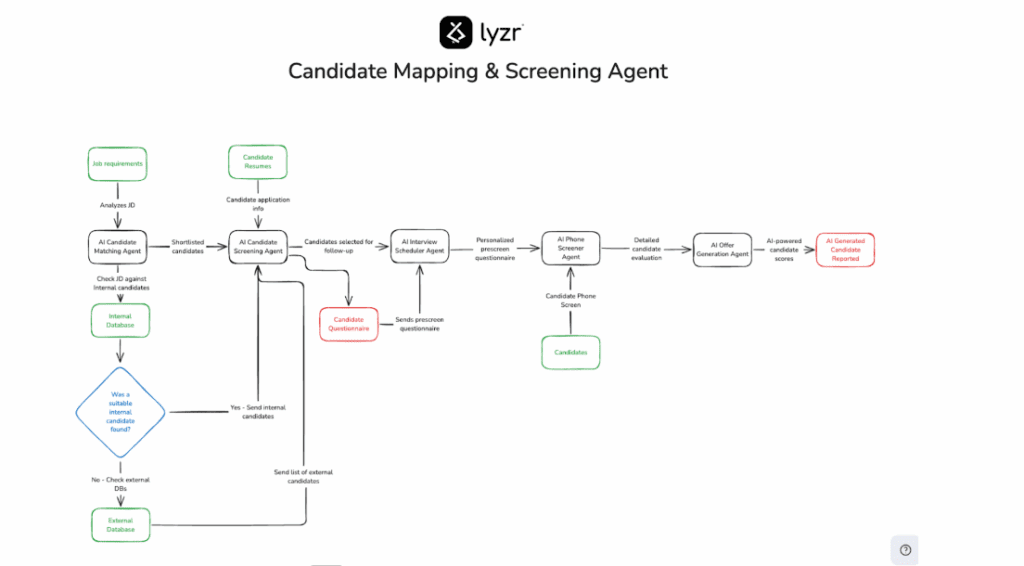
Agent UI:

2. Performance Review Automation
The Problem
Traditional performance management is inefficient, time-consuming, and often biased. Employees and managers rely on manual reviews, subjective assessments, and incomplete data from scattered sources. This leads to inconsistent feedback, lack of actionable insights, and limited growth opportunities for employees.
Solution
An AI-powered Performance Management System automates data collection, feedback analysis, and performance evaluation. By aggregating inputs from multiple sources self-assessments, manager feedback, chat logs, meeting summaries, and psychometric insights the system provides a holistic, unbiased, and data-driven performance report.
Lyzr Workflow

Whether it’s automating candidate screening, setting up onboarding workflows, or running engagement surveys, Lyzr gives teams the ability to deploy smart, goal-driven AI agents without writing code.
And for those who want to explore before building, there’s a growing library of pre-built agents ready to try out, built specifically for real HR use cases.
So instead of waiting for tools to catch up to HR needs, teams can start solving problems today with agents that are fast to build, easy to customize, and designed to work with context.
Because the future of HR isn’t just automated, it’s agentic. And it’s already here.
Start today with Lyzr Agent Studio or Book a demo with us.
FAQs: AI in HR and Lyzr’s Diane Agent
1. Is AI really capable of handling human-centric HR tasks?
Yes AI doesn’t replace human empathy; it amplifies it. Tools like Diane automate repetitive, rule-based tasks (like screening, scheduling, and tracking), freeing HR professionals to focus on people-first initiatives such as engagement, culture, and growth.
2. How is Diane different from traditional HR software or chatbots?
Unlike typical HR tools that need human input for every task, Diane is an autonomous AI agent. That means it doesn’t just respond it acts. Diane can screen candidates, schedule interviews, analyze performance data, and even draft insights all without manual intervention.
3. Does Diane integrate with our existing HR systems (like Workday, BambooHR, or Zoho People)?
Absolutely. Diane integrates with most HRMS, ATS, and productivity tools through APIs or direct connectors. Lyzr’s no-code setup means your team can connect Diane with your existing workflows in minutes not weeks.
4. How secure is employee data with Lyzr and Diane?
Data privacy is a top priority. Lyzr follows enterprise-grade compliance standards, including GDPR, SOC 2, and ISO 27001. All employee and candidate data stays encrypted and never leaves your organization’s secure environment.
5. Will using AI make HR feel less human?
Actually, the opposite. By automating the busywork screening, scheduling, paperwork AI lets HR professionals spend more time with people. The result: more human conversations, not fewer.
Book A Demo: Click Here
Join our Slack: Click Here
Link to our GitHub: Click Here

